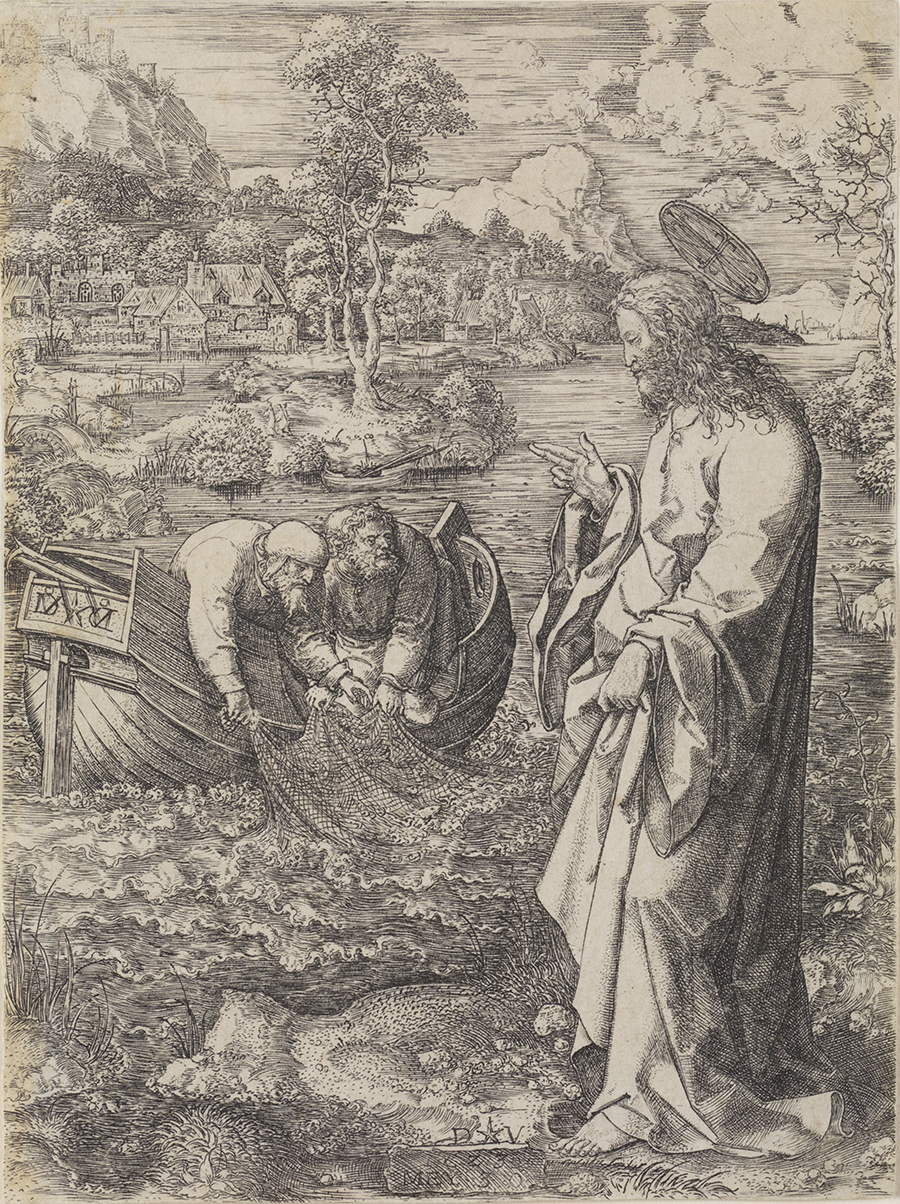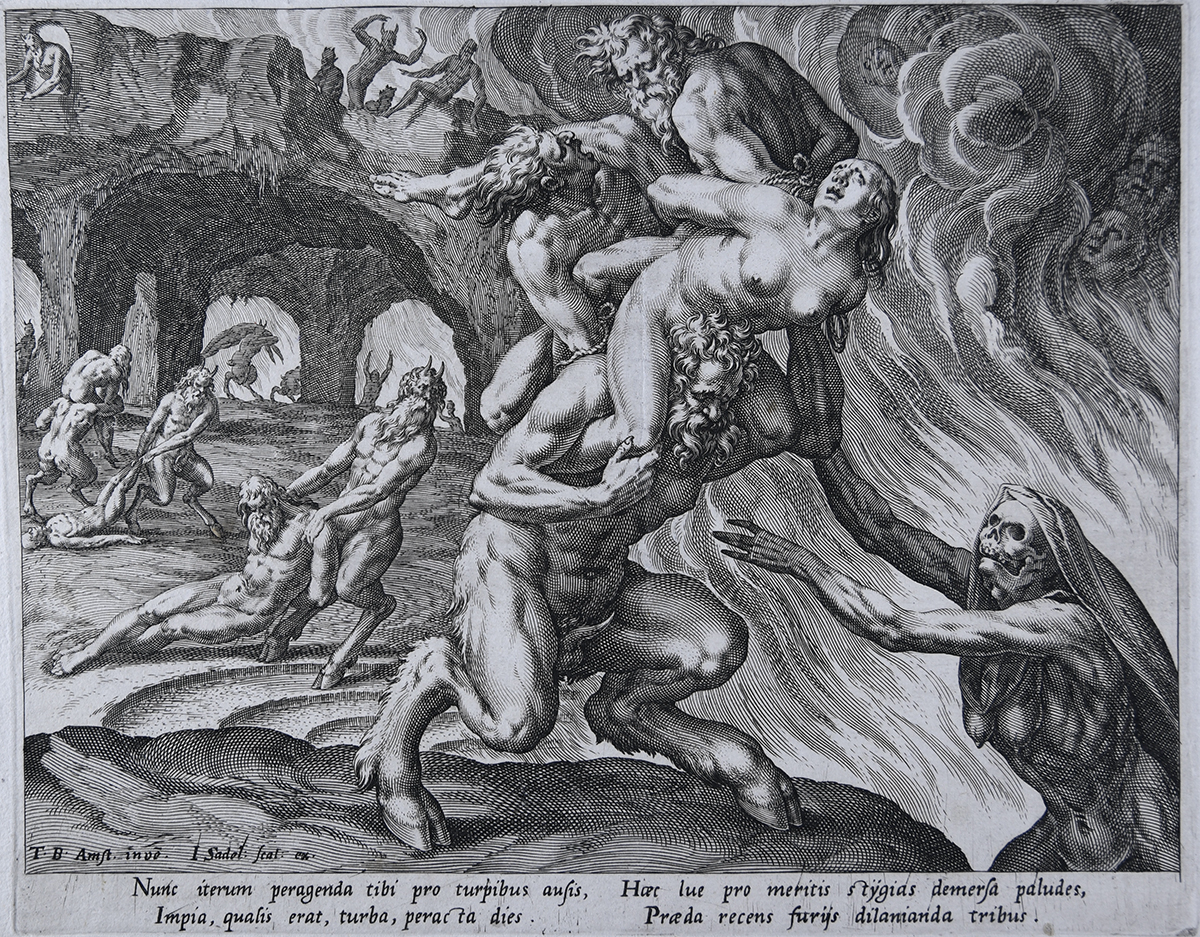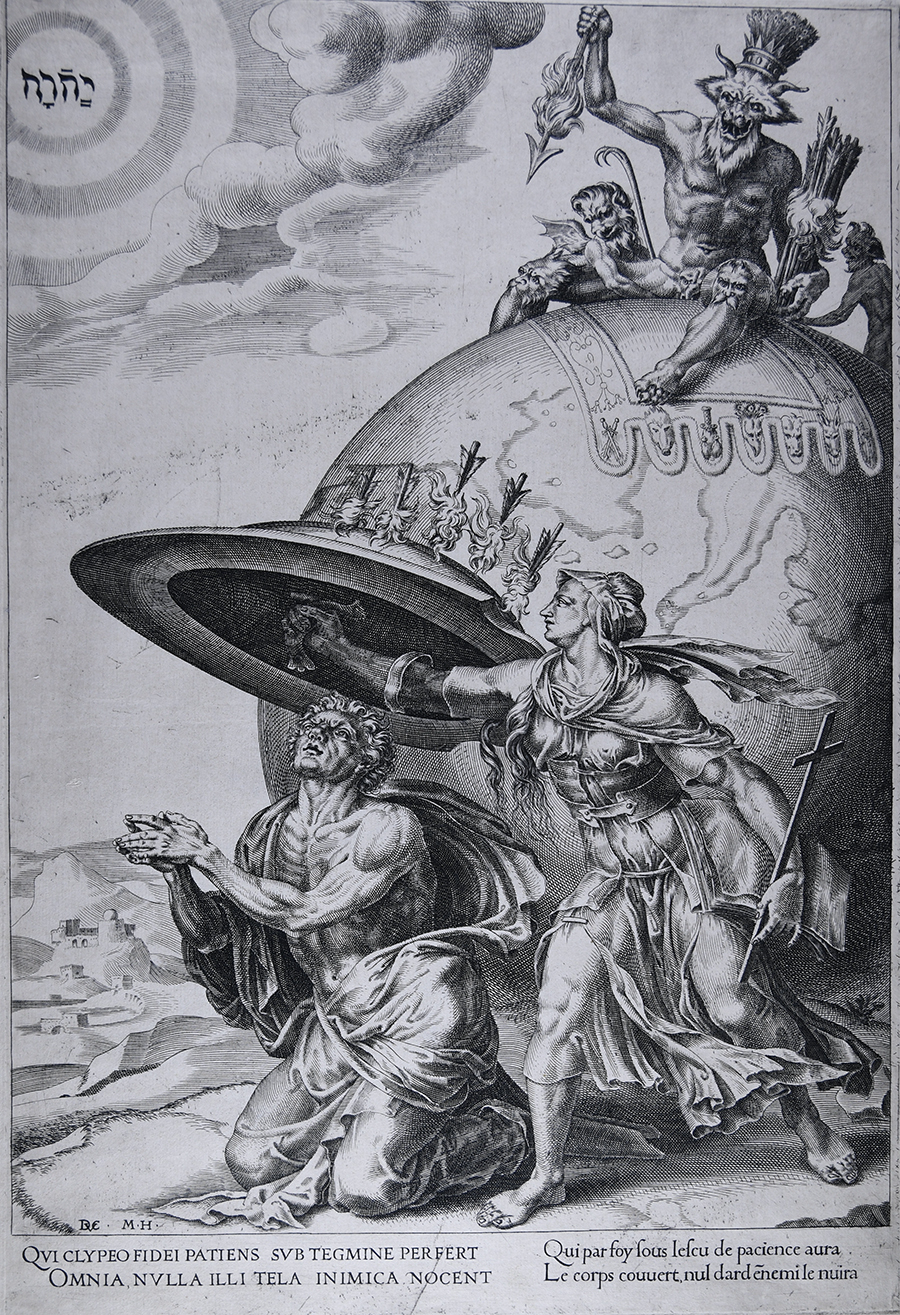Jan
Sadeler (Flemish, 1550-1600), after Dirck Barendsz. (Netherlandish,
1534-1592). The Last Judgment, late 16th century. Engraving. Gift of
Walter Melion and John Clum.

Dirk Vellert (Flemish, 1480-1547). The Calling of Saints Andrew and Peter, 1523. Engraving. John Howett Fund and museum purchase in honor of Margaret Shufeldt. © Michael C. Carlos Museum, Emory University. Photo by Bruce M. White, 2011.

Jan Sadeler (Flemish, 1550-1600), after Dirck Barendsz (Netherlandish, 1534-1592). Hell, late 16th century. Engraving. Gift of Walter Melion and John Clum.

Dirck
Voklertsz Coornhert (Netherlandish, 1522 - 1590), after Martin van Heemskerck
(Netherlandish, 1498 - 1574). Man
Protected by the Shield of Faith , 1559. Engraving. Gift of Walter Melion and John Clum
The Michael C. Carlos Museum presents Through a Glass, Darkly: Allegory and Faith in Netherlandish Prints from Lucas van Leyden to Rembrandt , on view from August 31 through De cember 1, an exhibition of 90 prints from artists such as Lucas van Leyden, Hendri ck Goltzius, Jan Sadeler, and Rembrandt .
From 1500 -1700, printmakers in the Low Countries were, as a group, the most skilled and prolific in all of Europe , and prints, often combined with text, played an important role in Netherlandish religious culture during this period. Printmakers utilized allegory , the metaphorical substitution of one set of images, objects, and ideas for another , to address the most f undamental issues binding the human and the divine —love, virtue, vice, sin, death, and salvation —as well as the post -Reformation religious turmoil that consumed the Low Countries.
Through a Glass, Darkly will be the first major exhibition to systematically consider the form, function, and meaning of allegorical prints produced in the Low Countries during the 16th and 1 7th centuries . Contemporary viewers will find themselves face to face with highly affecti ve allegorical images, on the same journey towards understanding that the images’ intended audience would have undertaken. Though specific to the Low Countries during the 16th and 17th centuries, a period when understanding allegory was crucial to knowing God’s truth, Through a Glass, Darkly speaks more broadly to the communicative power of allegory and the way meaning is generated, conveyed, and interpreted .
A fully illustrated catalogue with essays by exhibition curators Walter S. Melion, Asa Griggs Candler Professor of Art History and director of the Bill and Carol Fox Center for Humanistic Inquiry at Emory University, and James Clifton, director of the Sarah Campbell Blaffer Foundation and curator of Renaissance and Baroque painting at the Museum of Fine Arts, Houston, will be avai lable for purchase at the museum bookshop.